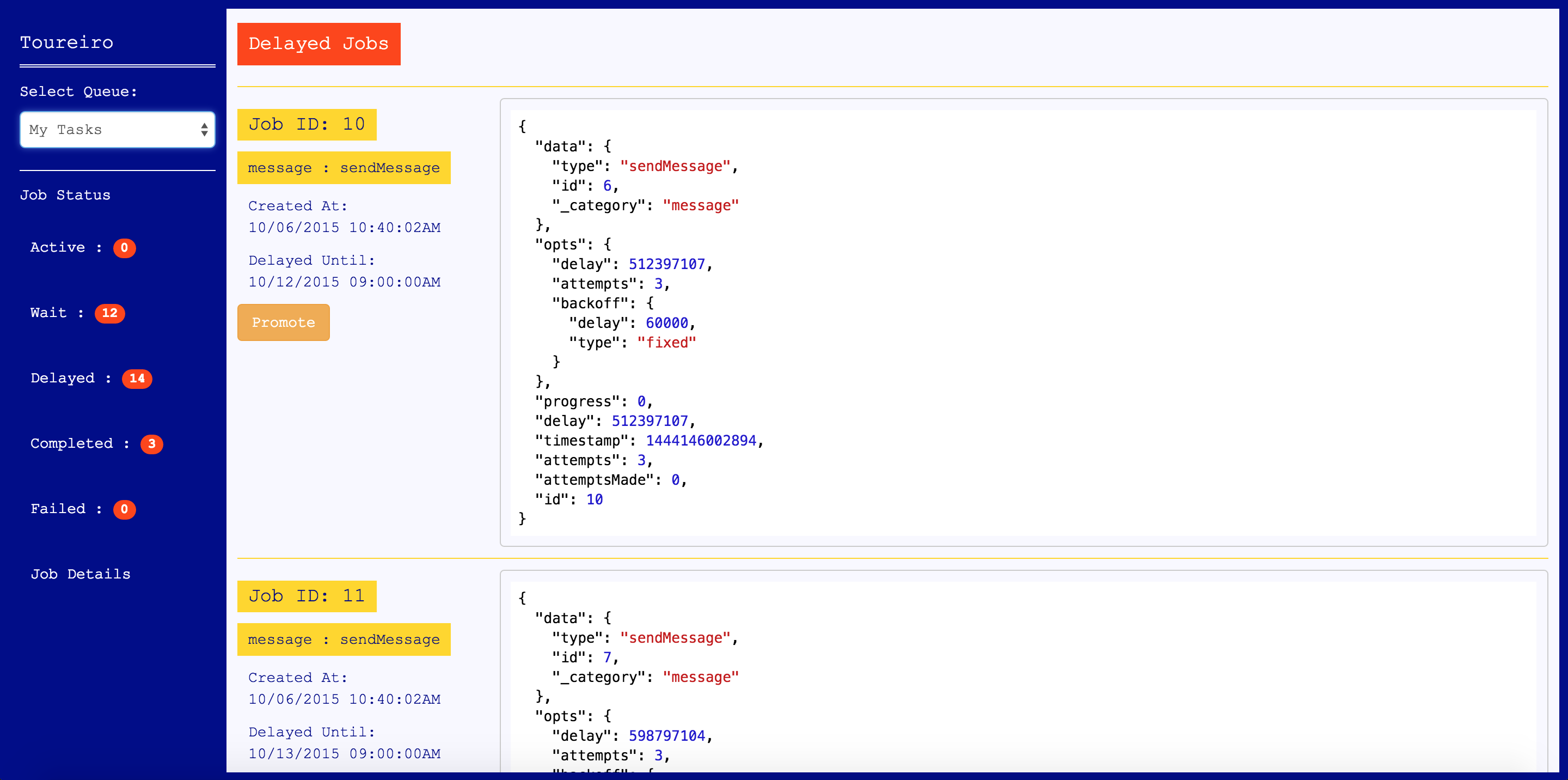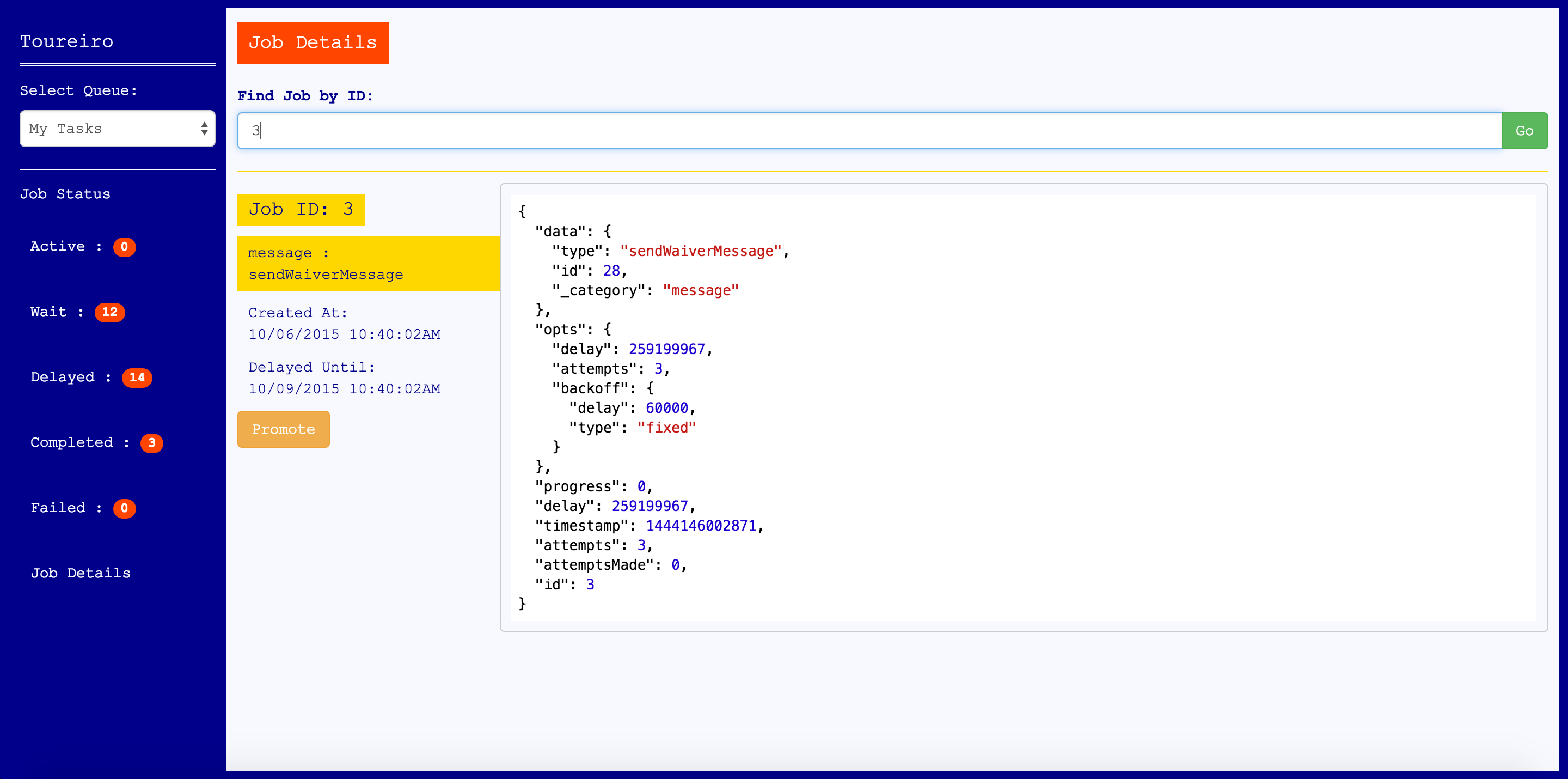Toureiro 
A graphical monitoring interface for the distributed job queue bull built using express and react. Toureiro provides simple monitoring features as well as the ability to promote delayed jobs directly.
NB : This fork only supports bull 3.x & above.
Screenshots


Get Started
First install toureiro-next from npm.
npm install toureiro-next
You can then use toureiro in your project. The constructor toureiro() will return an express app, which you can then have it listen to any port you desire:
const toureiro = ;const app = ;const server = app;Or you can mount it to a subpath for your own express server:
const express = ;const toureiro = ; const app = ;/** * Your own setup... */app; const server = app;You can also run toureiro as a standalone program:
> toureiroToureiro is now listening at port 3000...Config
By default, toureiro will try to connect to the redis db #0 at 127.0.0.1:6379, but you can configure it yourself:
const app = ;Usage
You can invoke toureiro --help to see usage instructions:
Usage: toureiro [port]
[port] Port for toureiro to listen to
Options:
--rh Redis host, default to 127.0.0.1
--rp Redis port, default to 6379
--rdb Redis database number, default to 0
--pass Redis password, default to null
Development
gulp dev: Starts a test server for port 3000 and redis db #1
npm test: Runs the mocha tests
Any issues reporting or pull requests are welcomed!
Why Bull?
Distributed task queue is a necessity in a lot of use cases. Among all the queues out there, Celery is probably the most prominent and has the biggest community. However, it's hard to integrate Celery into the Node.js programs, simply because that's another language environment to maintain. Therefore, a javascript native task queue is much needed.
Among the queues written for javascript, Kue is the most widely used one. Kue is a great library, and we have relied heavily on Kue before, but we are gradually troubled by the constious bugs of the library. Due to the time when Kue was first written, a lot of things weren't possible (for example, atomicity of complex redis operations, which is now enabled by the built-in LUA scripting engine). What's more, several important features (FIFO behavior of delayed jobs, for instance) are missing from Kue or are hard to implement due to the early design decisions.
Then bull came along. It's written by the guys from OptimalBits and its APIs are modeled heavily after those of Kue. In its core, however, it's written very carefully (and differently from Kue) to ensure robustness and atomicity. Bugs that are common to distributed queue designs are not found with bull or have been fixed along the way.
As awesome as bull is, the only thing that is missing is a web monitoring interface, much like that of Kue, so we decided to make our own, thus toureiro is born.
Browser Compatibility
It's compatible with all modern browsers. Since the front end relies on react, and react does support all the way down to IE8, it's possible that IE8 will work as well, though with messy styles.